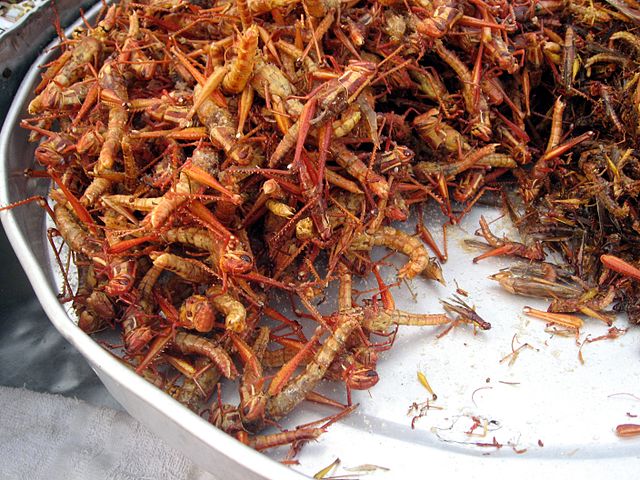Kristin
NPR podcast Invisibilia had a powerful recent episode called “The Callout” about how oppressed groups have used callouts as a tool to take back power, but how it might sometimes go too far.
This long but fascinating article in the Guardian makes the case that our economy and media are operating at a global level while our governance struggles to operate at a national level. The result is dangerous nationalism and decline. We need to match governance with the things we are trying to govern, and create global structures with some teeth behind them.
Ed
Want to eat grasshoppers? Believe it or not, this is not a dare. It’s something you can now do at Mariners games. ESPN wrote a fascinating explanatory piece on how they are harvested in Mexico and brought to Seattle for consumption by Cascadian baseball fans at Safeco Field. Yum!
In this week’s installment of “social media is awful (sponsored by Eric de Place),” here’s a Q&A with former Reddit product head Dan McComas. His quote in the headline says it all.
Alan
Round one of California’s debate over land use and housing went to the forces of exclusion, sprawl, and hoarding. But there will be a round two.
Sightline fellow Valerie Tarico lays out a fascinating argument about the big stories that shape the US: Part one addresses how the different historical narratives embraced by liberal and conservative Americans has led to the strife we see today , and part two describes the two dominant left-leaning narratives and why they sometimes clash.
Aven
If, like me, you sometimes fall into a deep funk when thinking about humanity’s cumulative effects on the planet, I highly recommend this essay on “ecological grief”, which is “the grief felt in relation to experienced or anticipated ecological losses, including the loss of species, ecosystems, and meaningful landscapes due to acute or chronic environmental change.”
We do not see ecological grief as submitting to despair, and neither does it justify ‘switching off’ from the many environmental problems that confront humanity. Instead, we find great hope in the responses ecological grief is likely to invoke. Just as grief over the loss of a loved person puts into perspective what matters in our lives, collective experiences of ecological grief may coalesce into a strengthened sense of love and commitment to the places, ecosystems and species that inspire, nurture and sustain us. There is much grief work to be done, and much of it will be hard. However, being open to the pain of ecological loss may be what is needed to prevent such losses from occurring in the first place.
If you need more reason than that to be hopeful, Colorado is joining the wave of climate lawsuits against big oil companies, and the libertarian Niskanen Center is supporting the suit, the top five wind producing states in the US are all red states, and a nascent practice called “carbon farming” might just save the earth.
So, have a happy Earth Day!








